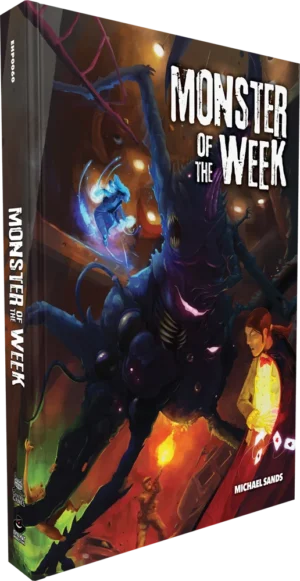Terry Pratchett's Discworld: Adventures in Ankh-Morpork Fantasy; Comedy; Social Intrigue; Narrative-Driven; Character Customization; Sandbox
Terry Pratchett's Discworld: Adventures in Ankh-Morpork, a tabletop roleplaying game by Modiphius Entertainment, aims to capture the humor, satire, and darkly entertaining fantasy of the Discworld series. Set primarily in the city of Ankh-Morpork, the game focuses on narrative-driven gameplay with a unique system that emphasizes traits and consequences over traditional stats. The target audience includes fans of the Discworld series and tabletop RPG enthusiasts looking for a less rules-heavy, more story-focused experience. Its success hinges on faithfully recreating the tone of the books and providing a system that encourages player creativity and 'shenanigans' while avoiding overly complex mechanics.
Theme and Setting
The game is steeped in the satirical fantasy world of Discworld, a flat planet balanced on the backs of four elephants standing on a giant turtle. Ankh-Morpork, a sprawling and corrupt city, serves as the primary location for adventures. The setting blends fantasy tropes with social commentary, humor, and absurdity, creating a unique atmosphere where anything can happen. The game aims to capture the spirit of the books, where humor and satire are integral parts of the world, and even serious events are often tinged with irony. The core concept revolves around 'Narrativium,' the story the world wants to tell, which the players actively disrupt as members of the Ankh-Morpork City Watch or other organizations.
Core Mechanics and Rules
The game utilizes a narrative-focused system where characters are defined by Traits rather than numerical stats. Tests are performed using these Traits to overcome challenges and thwart the 'Narrativium.' Consequences play a significant role, with the GM able to introduce complications and setbacks based on player actions. The quickstart rules offer a streamlined experience, focusing on scene-based gameplay and collaborative storytelling. Actions have realistic results that are to be determined by the GM. There are short adventures for the players to choose from, in order to immerse themselves in the setting of the books.
What Makes It Unique
Several factors contribute to the game's uniqueness:
- Emphasis on Narrative: The system prioritizes storytelling and player agency over rigid rules.
- Trait-Based Characters: Characters are defined by descriptive Traits rather than numerical stats, encouraging creative roleplaying.
- 'Narrativium' Mechanic: This concept encourages players to actively shape the story and disrupt the world's pre-determined course.
- Focus on Consequences: Actions have meaningful consequences, adding depth and realism to the gameplay.
- Humorous Tone: The game strives to capture the satirical humor of the Discworld series, creating a lighthearted and entertaining experience.
The game seems designed to encourage 'shenanigans,' allowing players to creatively bend the rules and exploit loopholes, a common element in Discworld stories. This is supported by the Narrativium concept and the emphasis on consequences, which provides a framework for GMs to manage player actions while maintaining the humorous tone.
Target Audience and Player Experience
The target audience includes fans of the Discworld series, tabletop RPG players seeking a more narrative-driven experience, and those who enjoy humorous and satirical settings. The game aims to provide a lighthearted and engaging experience, encouraging player creativity and collaboration. Players can expect to encounter familiar characters, locations, and events from the books, while also having the freedom to create their own stories within the Discworld universe. The expected player experience involves a blend of problem-solving, roleplaying, and humorous interactions, with a focus on disrupting the established order and embracing the absurd. While the previous GURPS Discworld was fun it did not capture the humor that the Modiphius version seems to be aiming for.


